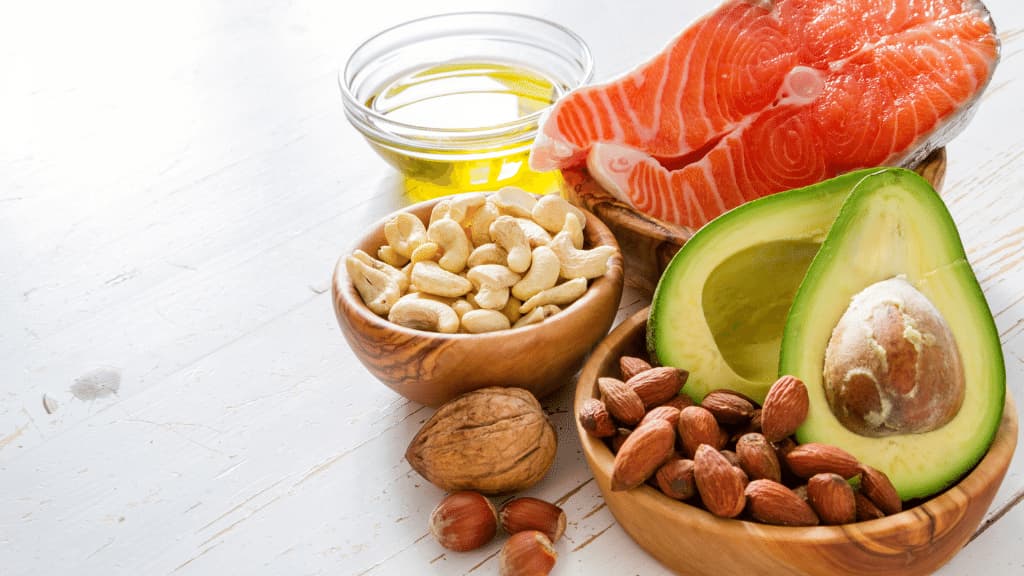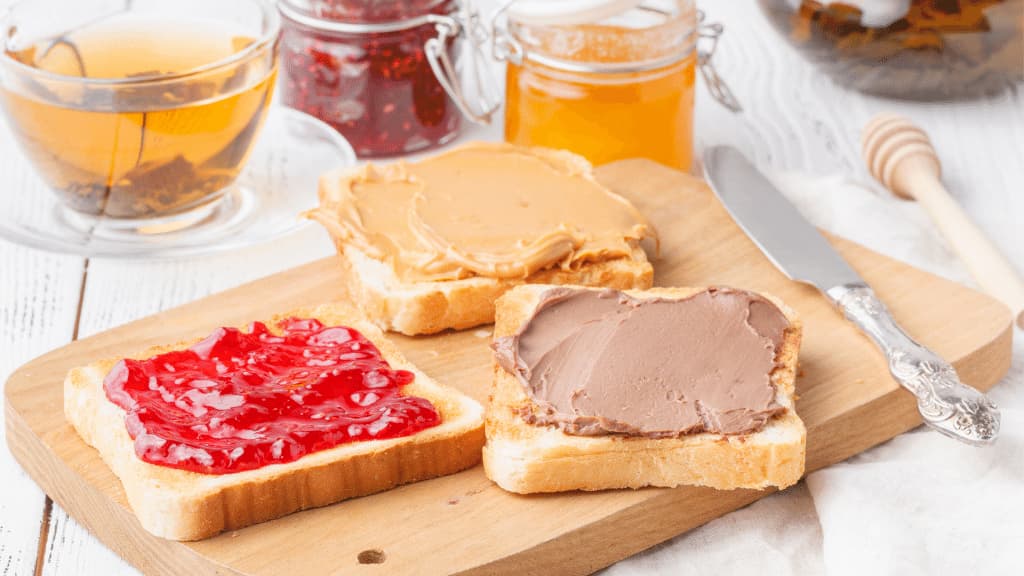High Calorie Diet
“High Calorie Diet” was written by Karina Tolentino, RD & edited by Ashlee Mikles, RD, CD, CLS. Final review/edit completed by Aly Bouzek, MS, RDN. Karina is a dietitian and blogger at Dietitian Karina.
Unplanned weight loss is a common health concern among the elderly. Low body weight can lead to severe health complications like malnutrition or long-term illness. (1)
A high calorie diet is a solution to helping you or your loved one gain weight back to improve health.
Keep reading to learn more about what a high calorie diet is and how you can quickly get started with it.
What is a High Calorie Diet?
Generally, a high calorie diet includes all food groups but it can also focus on eating more fat since fat can provide more calories in a smaller portion (as compared to protein and carbohydrates).
High-fat foods include full-fat dairy, butter, oil, nuts, seeds, and avocado, which can be eaten more often to get more calories.
Although the focus may be on fat; protein, carbohydrates, fruit, and vegetables are still important in maintaining good health and should also be included in the diet.
Who Needs a High Calorie Diet?
High calorie diets are typically recommended for older adults who have lost significant weight or are at risk of losing weight. Low body weight and frailty in the elderly are associated with a higher risk of death or further medical complications like fractures. (1)
Common causes of weight loss in older adults:
- Illness or hospital stay
- Changes in taste
- Chronic illness
- Depression
- Medication side effects
- Needing assistance with cooking and grocery shopping
- Difficulty chewing or swallowing
Unfortunately, weight loss can also be a sign of an underlying illness or disease severity. That’s why it’s important to regularly talk to your doctor so they can monitor your weight and health. (1)
What Foods Should You Eat on a High Calorie Diet?
There are many types of foods that you can add to your diet to naturally increase your calories and meet your nutritional needs. Let’s learn about a few high calorie diet foods below:
Avocado
Avocados are a good source of healthy fat, vitamins, minerals, and fiber. A medium avocado has about 22 grams of fat and 240 calories. You can add avocado to meals, sandwiches, salads, soups, smoothies, or toast.
Full-fat Dairy
Dairy products like whole milk, full-fat yogurt, or cream are great ways to get fat, calories, and protein. One 8-ounce glass of whole milk has about 8 grams of protein and 150 calories.
Did you know that milk also contains essential nutrients like potassium, calcium, vitamin D, and niacin? Grab a half-gallon or gallon the next time you’re grocery shopping, or check out our Weight Gain Milk recipe to make your own high calorie milk!
Granola
Granola is a food usually made from rolled oats or puffed rice combined with seeds, dried fruit, and sweeteners. ½ cup of granola will have about 230 calories, and 7 grams of fat to boost your energy.
It’s an excellent source of calories that can be enjoyed alone as cereal, or as a topping for your yogurt, oatmeal, smoothie, or acai bowl.
Whole Grain Pasta
Whole grain pasta is a great high calorie diet food choice because it also packs in some fiber! Along with fiber, it also has B vitamins, iron, antioxidants, and healthy fats.
Additionally, 1 cup of cooked whole grain pasta offers more than 205 calories and 42 grams of carbohydrates, 8 grams of protein, and almost 5.5 grams of fiber.
Add in your favorite sauce and some veggies, and you’ve got yourself a satisfying and delicious high calorie diet option.
Salmon

Fish like salmon and tuna are rich in omega-3 fatty acids and protein, which research has shown decreases inflammation.
½ of a large salmon filet has about 250 calories, 27 grams of protein, and 15 grams of fat.
The fat content in these fish makes them some of the most flavorful with minimal seasoning.
Healthy Fats
Healthy fats like nut butter, nuts, seeds, and olive oil are jam-packed with calories. Beneficially, a small portion of these healthy fats will go a long way to help boost your calorie intake as a condiment or when used in cooking.
Just 2 tbsp of peanut butter gives you almost 205 calories, and a little over 16 grams of fat! Perfect as a high calorie diet food!
Tips to Add More Calories to Your Meals

Here are some of our tips on ways you can enjoy high calorie foods to make your entire meal a high calorie meal:
- Add butter to your veggies during cooking
- Swap a glass of water for whole milk
- Use gravy or sauces in your meals as an added condiment (bonus: it makes meals creamier!)
- Enjoy bread with peanut butter, butter, jam, or cream cheese
- Add granola to your cereal, oatmeal, or enjoy by itself
There is no wrong way to pair foods together. Experiment with what tastes good and works well for you.
Tips to Increase Appetite
A person can have a decreased appetite for a variety of reasons. Here are some strategies you can use to increase your appetite for weight gain.
- Talk to your dietitian about liberalizing medical diets like low sodium if you’re not eating enough
- Small and frequent meals can help you eat more food in smaller amounts
- Prioritize favorite foods to make meals appealing and appetizing
- Try eating soft food textures if you have difficulty chewing or swallowing
- Eat a variety of foods to increase enjoyment and satisfaction
- Eat meals with other people for socialization, community, and improved mental health
Start by consistently trying 1-2 strategies and see if you notice any improvements in your appetite.
Should You Take a Nutrition Supplement?
Getting nutrients and calories from food is always recommended before trying a supplement.
If you are struggling to meet your calorie needs with food, then a dietitian may recommend a nutrition supplement.
Nutrition drinks like Ensure, Boost, Nepro (for people with kidney disease), and Glucerna (for people with diabetes) make various nutritionally complete products. One bottle may be equivalent to one meal containing 350-450 calories and 15-30 grams of protein.
High Calorie Diet Takeaways
A high calorie diet may help to promote weight gain, minimize weight loss, and help you meet your nutritional needs to stay healthy.
There are a variety of foods that you can prioritize in your diet to increase your calorie intake before turning to supplements. Though, supplements can be used as a tool if deemed necessary by a health care provider or dietitian.
Experiment with ways you can include more high calorie foods in your day and see what works best for you!
